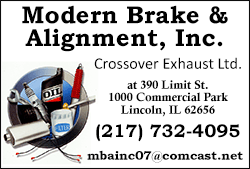|
 The Federal Reserve's decision to delay raising interest rates for
the first time since the 2008 financial crisis will likely encourage
companies to take out more debt to repurchase their own shares or
issue special dividends before the end of the year, adding to the
almost $1 trillion that companies were already on pace to return to
investors this year, fund managers and analysts say. The Federal Reserve's decision to delay raising interest rates for
the first time since the 2008 financial crisis will likely encourage
companies to take out more debt to repurchase their own shares or
issue special dividends before the end of the year, adding to the
almost $1 trillion that companies were already on pace to return to
investors this year, fund managers and analysts say.
That's because, with historically low interest rates now likely to
extend to at least December, companies are "now in a sort of
borrowing nirvana," said a bond strategist, who asked not to be
quoted by name because he recently left one firm and has not yet
officially started at his new position.
While there is no way to track debt taken out for share buy-backs
alone, U.S. corporations have taken out $59.4 billion in debt this
year - or about 8 percent of the total amount of U.S. corporate debt
issued - to fund special dividends to shareholders, according to
data from Dealogic. That is more than double the $28.4 billion
issued for special dividends in 2014, which are another way that
companies reward shareholders and tend to parallel buyback
purchases.

Interest rates at near zero have increasingly prompted companies
flush with cash to issue debt to fund share buybacks. Apple Inc, for
instance, has issued $23.6 billion in debt this year despite having
more than $200 billion in cash, part of its plan to buy-back up to
$140 billion in shares by the end of March 2017. MetLife Inc.,
meanwhile, sold $1.5 billion in bonds in June to fund share
buybacks, while having more than $10 billion in cash on its balance
sheet.
Executives have several reasons to take out longer-term debt to
reward shareholders now. A blue-chip company will likely pay about
2.2 percent interest on a 5-year bond while at the same time paying
out about 3 percent in dividends a year, making it less expensive to
buy shares outright, bond analysts said.
And, with pay and bonuses often tied to share performance, corporate
management teams have an incentive to spend money to bolster share
prices, especially in a time of slow earnings growth.
"On a short-term basis, buybacks create more demand even if the
stock itself isn't all that attractive," said Howard Silverblatt,
senior index analyst for S&P Dow Jones Indices.
SHAREHOLDER REWARDS
Already, some executives are discussing issuing debt to repurchase
shares in the wake of the Fed's decision.
"I could foresee a situation where we're going to continue to buy
back more shares over the next year or so. It could put the credit
rating at risk. And I would tell you that that's okay," said United
Technologies Corp chief executive Greg Hayes, speaking at a Morgan
Stanley investor conference on Thursday. "It makes pretty good sense
to buy back stock when I'm paying more in dividends than I'm paying
in interest to buy it back."
While there is no way to quantify exactly how much share buyback
have helped stock performance, approximately 20 percent of the
companies in the S&P 500 have "significantly" decreased share counts
year over year for the past 6 quarters, Silverblatt said.
[to top of second column] |

As a result of cutting the number of shares available, these
companies have bolstered such metrics such as earnings per-share,
helping to make companies look like they are doing better even if
their absolute performance remained the same, he said.
The companies that have been buying back stock the most aggressively
have not outperformed this year, however. The S&P 500 Buyback Index,
which tracks the performance of the 100 stocks with the highest
buyback ratios in the S&P 500 - a group that includes Coca-Cola
Enterprises Inc, Cameron International Corp, and Motorola Solutions
Inc - is down 6.8 percent for the year to date, a performance about
1 percentage point worse than the benchmark as a whole, according to
Thomson Reuters data.
Through August, companies in the S&P 500 had authorized $598.5
billion in share buybacks, the largest on record and more than the
full-year totals from 2008 to 2012, according to Robert Leiphard, an
analyst at Birinyi Associates. Companies are on pace to announce
$897 billion in buybacks for the full year, which would top the $863
billion authorized in 2007 as the largest of all time, he said.
AMOUNT OF DEBT
Some analysts and fund managers now expect those numbers to increase
by the end of December.
"This might have reopened the window" for companies that had
expected an increase in interest rates to curb their share
repurchase programs, said Scott Kimball, a senior portfolio manager
with Taplin, Canida and Habacht.
Companies had front-loaded their debt issuance this year to get
ahead of the expected rate hike in September, said Hans Mikkelsen,
head of U.S. high grade credit strategy at Bank of America Merrill
Lynch Global Research.

Yet now that the Fed has added concerns about global economic
weakness to its outlook, historically low rates may last into next
year, he said. At the same time, bond investors will likely continue
buying new issues, given the net inflows to fixed income mutual
funds, he said.
"People are starting to look at that and saying that the Fed will
not act for a long period of time," he said.
(Reporting by David Randall, editing by Linda Stern and John
Pickering)
[© 2015 Thomson Reuters. All rights
reserved.] Copyright 2015 Reuters. All rights reserved. This material may not be published,
broadcast, rewritten or redistributed. |